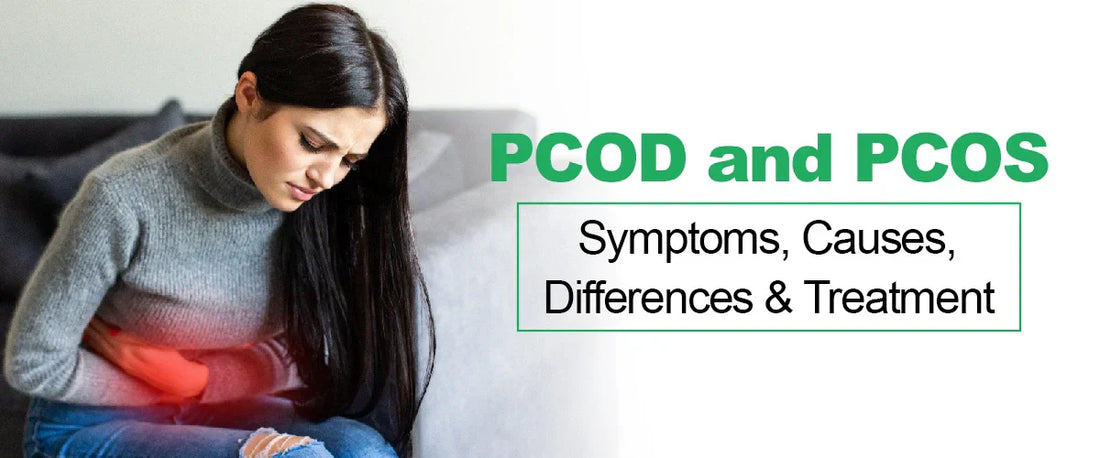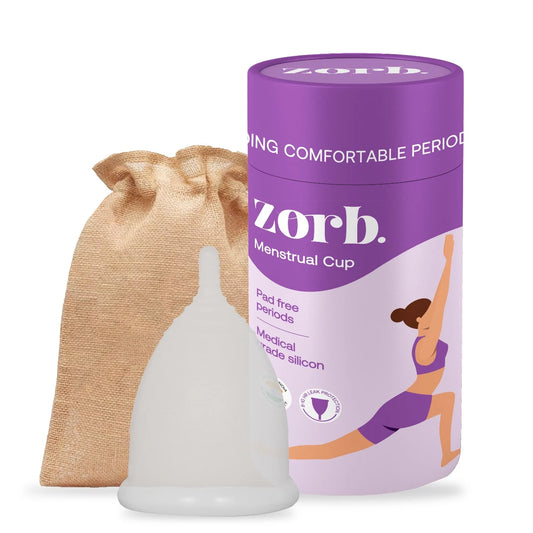
A Guide to Understanding PCOD vs. PCOS
Sakshi GargShare
Imagine this: you’re out there trying to live your best life, sipping chai, scrolling Instagram, dreaming of glow-ups and suddenly, your hormones go, “LOL, plot twist!”
Welcome to the very real, very misunderstood, and very annoying world of PCOD and PCOS. Two cousins from the same hormonal family, who just refuse to mind their own business.
But don’t worry. We’re going to break this down without medical jargon, drama, or diet-shaming. Just straight talk, a few laughs, and the kind of information every person should know.
First things first: What’s PCOD? What’s PCOS? And why do they sound like WiFi router names?
Let’s decode the acronyms before your brain overheats:
-
PCOD: Polycystic Ovarian Disease
-
PCOS: Polycystic Ovary Syndrome
Both affect ovaries, both mess with hormones, and both love creating confusion.
The Basics:
-
PCOD is when your ovaries release a lot of immature or partially-mature eggs. These eggs turn into cysts over time.
-
PCOS is a more serious metabolic condition. It not only affects ovaries but your entire endocrine system. Think of it as PCOD’s overachieving, troublemaking elder sister.
So… Are PCOD and PCOS the same?
Nope. They’re not the same. Similar? Yes. But not identical.
Here's the tea:
|
Feature |
PCOD |
PCOS ⚠️ |
|
Commonality |
More common (1 in 3 women in India) |
Less common (1 in 5 women in India) |
|
Egg release |
Still happens, though irregularly |
Might completely stop ovulation |
|
Impact on fertility |
Mild |
Can severely affect fertility |
|
Weight issues |
Not always |
Often linked to insulin resistance |
|
Severity |
Manageable with lifestyle changes |
Needs more medical support |
How do I know if I have it? (Without spiraling on Google)
Let’s break down the symptoms in plain speak:
Common signs of PCOD/PCOS:
-
Periods showing up fashionably late. Or not at all.
-
Acne
-
Sudden hair growth in places you didn’t ask for (chin hair)
-
Hair loss on your head
-
Weight gain that refuses to leave
-
Mood swings that even Bollywood can’t script
-
Trouble getting pregnant (for some, not all)
⚠️ Note: Having one or two symptoms doesn’t confirm anything. Your body is not a "one size fits all" situation. Only a doctor can confirm it after some blood tests, ultrasounds, and a polite but serious chat.
Also Read: What your Biology Teacher Didn't Tell You about your Cycle!
But what causes all this hormonal drama?
Excellent question. Here’s the short version:
-
Genetics (thanks, family tree)
-
Insulin resistance
-
Inflammation
-
Sedentary lifestyle
-
Stress (life, boss, society... take your pick)
Basically, it’s a complicated mix of hormones (especially androgens - the “male” hormone women also have) going rogue.
Okay, so what now? Is it curable?
Let’s get real.
-
PCOD is manageable. Many people with PCOD go on to live healthy, happy lives with babies, careers, glow-ups, and all.
-
PCOS doesn’t have a “cure” yet, but it can be controlled with the right mix of lifestyle changes, medication, and mindset.
It's not a "death sentence for your uterus" or the end of your plans. It’s just… an extra guest at your life party that needs to be managed.
Treatment? More like teamwork.
There’s no one-size-fits-all approach. But here’s what usually helps:
1. Food that fuels, not fights
You don’t have to go keto or gluten-free unless your doctor says so.
Just focus on:
-
Whole grains
-
Lean protein
-
Fiber-rich veggies
-
Less sugar (yes, even the sneaky ones in ketchup)
Also, please eat enough! This is not the time to declare war on carbs with a 900-calorie “Instagram diet".
2. Move that body
No, you don’t need to become a gym rat or run marathons.
Just pick something you enjoy like walking, yoga, dance, swimming, Zumba and do it regularly. Your hormones love consistency.
3. Manage stress
Because cortisol (the stress hormone) is a drama queen.
Try meditation, journaling, therapy, or just switching off your phone at 9 PM.
4. Sleep like it’s your job
7-9 hours. Every night. Without doom-scrolling reels at 2 AM.
Yes, your ovaries are watching.
5. Medical help = self-love
Your doctor might prescribe:
-
Hormonal birth control to regulate periods
-
Anti-androgen meds to reduce acne/hair growth
-
Metformin (for insulin resistance)
Please don’t self-medicate based on a cousin's cousin’s WhatsApp forward.
But what about fertility?
Many women with PCOD/PCOS get pregnant naturally. Some need help. That’s okay.
It’s not a “you failed at womanhood” thing — it’s a medical condition, and doctors today have brilliant ways to support fertility journeys.
Also: your value as a woman is not defined by your ability to reproduce. Just putting that out there.
What should you not do?
Glad you asked:
🚫 Don’t ignore irregular periods — they’re your body’s feedback system.
🚫 Don’t believe every YouTube “cure” with neem, tulsi, and a backflip.
🚫 Don’t shame yourself for your body changing. It’s not your fault.
🚫 Don’t treat “weight loss” as the only goal. Aim for health, strength, and joy.
And now, for the boys at the back: Yes, you should care too.
If you’re a brother, boyfriend, dad, husband, or just a decent human knowing about PCOD/PCOS matters.
Because someone you love probably has it, and your support can make a huge difference.
No jokes about mood swings. No “just exercise, yaar” lectures. Just empathy, patience, some chocolates, and a hot water bag if required.
Also Read: Why Men Should Embrace Period Knowledge
So, in conclusion…
PCOD and PCOS are not rare. They’re not shameful. And they’re definitely not unbeatable.
They are, however:
-
A reminder to listen to your body
-
An invitation to take control of your health
-
And a shoutout to every woman balancing work, life, bloating, and blood tests like a champ
So let’s normalize the conversation. Let’s stop whispering “hormonal problem” like it’s Voldemort.
And if you ever feel alone in this just know there’s a whole squad of women (and some cool doctors) who’ve got your back.
PS: If you’re still unsure about your own symptoms, or just want to rant about how annoying hormones are please, book that gynae appointment. Don’t wait for your ovaries to send a handwritten letter.








